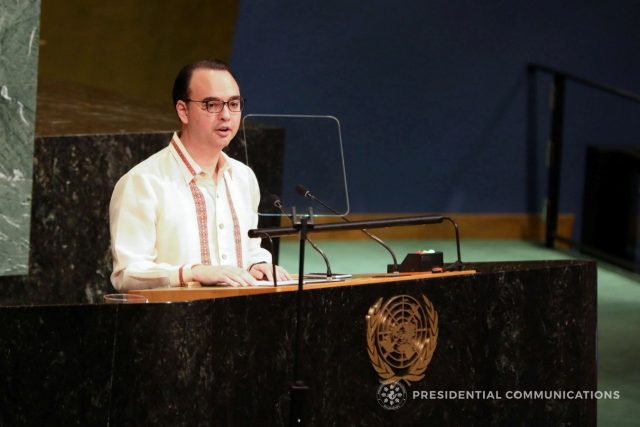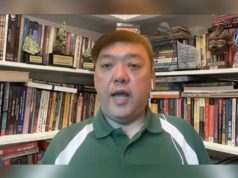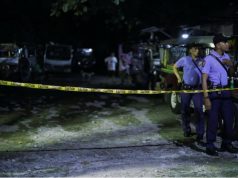
MANILA, Philippines — Foreign Affairs Secretary Alan Peter Cayetano’s presentation at the UN General Assembly last week, coupled with the Philippines’ rejection of recommendations at the UN Human Rights Council, “raises the risk that the death toll will likely continue to rise for the foreseeable future” as the government pursues its aggressive “war on drugs,” Human Rights Watch said.
Phelim Kine, HRW deputy Asia director, blasted Cayetano in a statement on Thursday, September 28, for describing the war on drugs as a “necessary instrument to preserve and protect the human rights of all Filipinos and was never an instrument to violate human rights.”
This “demonstrably false” claim, said Kine, not only “did more than add gross insult to injury for family members of the thousands of victims, including children, killed in the anti-drug campaign over the past 15 months” but also “airbrushed the fact that compelling evidence compiled by Human Rights Watch and investigative journalists has demonstrated that many of those deaths amount to extrajudicial killings by Philippine National Police personnel and their agents.”
The HRW statement came a day after the Social Weather Stations released the results of a survey that showed more than half of all Filipinos believe many of the suspects police say were killed in anti-drug operations did not actually fight back, contrary to official claims.
The same survey also showed that almost half of respondents believe many of the fatalities were not drug pushers.
The war on drugs that President Rodrigo Duterte vowed to wage aggressively when he campaigned is believed to have claimed more than 13,000 lives and counting since he assumed office last year.
Kine called the Foreign Affairs chief the Duterte government’s “denier in chief,” a role he said Cayetano, then still a senator, first played when he presented the Philippine report at the Universal Periodic Review of the country’s human rights record in May, during which he rejected the thousands of deaths attributed to the war on drugs as “alternative facts” and a “political tactic” by government critics.
Five months later, Kine said, “Cayetano isn’t backing down,” telling the UNGA that evidence of abuses in the war on drugs was “misinformation, fake news and politicization of human rights” as he invoked “sovereignty” to shield the government from criticism.
“These statements — and the move last week by the Philippines to reject all UPR recommendations that would make a practical difference in ending extrajudicial killings perpetrated in the name of its deadly ‘war on drugs’ — raises the risk that the death toll will likely continue to rise for the foreseeable future,” Kine said.









